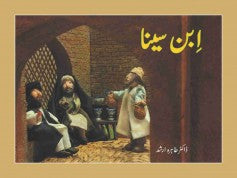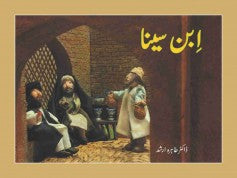1
/
of
1
Maqbool Books
Ibn-e-Sina - (Urdu Short Stories)
Ibn-e-Sina - (Urdu Short Stories)
Regular price
Rs.335.00
Regular price
Rs.345.00
Sale price
Rs.335.00
Unit price
/
per
Shipping calculated at checkout.
Couldn't load pickup availability
Ibn-e-Sina is a book about the life and work of the Persian polymath Avicenna (980-1037). The book covers Avicenna's contributions to philosophy, medicine, astronomy, and mathematics. It also discusses his impact on the development of science and philosophy in the Islamic world and Europe.
The book is written in a clear and concise style, and it is accessible to readers with no prior knowledge of Avicenna or his work. It is divided into three parts:
- The first part provides a biographical overview of Avicenna's life.
- The second part discusses Avicenna's philosophical and medical theories.
- The third part explores Avicenna's impact on the development of science and philosophy.
The book concludes with a list of resources for further reading.
Here are some of the key points covered in the book:
- Avicenna was born in Bukhara, in what is now Uzbekistan.
- He was a brilliant student and quickly mastered the traditional Islamic sciences.
- He began writing his own philosophical and medical treatises at a young age.
- He was appointed court physician to the Samanid ruler Nuh ibn Mansur.
- He was forced to flee Bukhara after the Samanid empire collapsed.
- He spent the rest of his life traveling and writing.
- He died in Hamadan, in what is now Iran.
Avicenna's contributions to philosophy
- Avicenna was a major figure in the development of Islamic philosophy.
- He reconciled Aristotelian philosophy with Islamic theology.
- He developed a comprehensive system of philosophy that influenced later thinkers such as Averroes and Maimonides.
- His most important philosophical work is the Book of Healing.
Avicenna's contributions to medicine
- Avicenna was the most important physician of the Middle Ages.
- He wrote the Canon of Medicine, which was the standard medical textbook in Europe for centuries.
- The Canon of Medicine covered all aspects of medicine, from anatomy and physiology to diagnosis and treatment.
- It was translated into Latin and other languages, and it had a profound impact on the development of medicine in Europe.
Share


